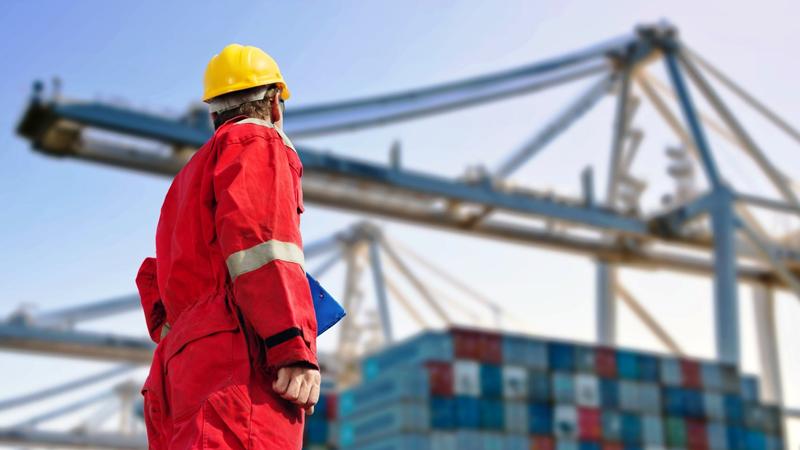
S ri Lanka has ratified the World Trade Organization’s (WTO) Trade Facilitation Agreement, thereby promising to create an environment with increased international trade that will benefit the trading communities in Sri Lanka.
With the emergence of Global Value Chains that multiply the impact of trade costs, trading structures have been forced to evolve. This in turn, has increased the importance of cross-border trade facilitation. As confirmation of this fact, over 120 member states have already ratified this agreement.
By being among the first few countries to ratify WTO’s Trade Facilitation Agreement (TFA), the Government of Sri Lanka has signalled its strong commitment to achieving trade cost reduction and desire to participate in global economic growth.
What is the WTO Trade Facilitation Agreement?
The TFA is the first major multilateral agreement at the WTO since the organization was established. It aims to improve trade efficiency by cutting red tape, increasing transparency and leveraging new technologies, thus improving the ability to trade across borders rapidly, reliably and cheaply.
Furthermore, for the first time in WTO history, the TFA will link the requirements of the agreement to the capacity of each country to fulfil them, thereby creating a level playing field among developed, developing and least developing countries.
Why should Sri Lanka implement WTO Trade Facilitation Agreement?
By simply honouring the commitments outlined by the TFA, authorities can dramatically improve the overall trade facilitation environment in Sri Lanka.
The competitiveness of Sri Lanka’s firms depends on their ability to get products to foreign markets in a timely and cost-effective way. Improving access to enabling infrastructure and cutting costly and burdensome trade-related procedures with simplified and transparent processes are essential in this regard.
Bureaucratic bottlenecks, a complex regulatory environment and the lack of intra-agency coordination have given rise to high trade transaction costs.
It is estimated that policy-induced barriers account for nearly 70 percent of the total time spent on exporting or importing goods. The preparation of documents is the most significant component, absorbing more than 50 [1] percent of the time spent on import or export procedures.
National Trade Facilitation Committee
Beyond the specific reform recommendations, well-defined institutional arrangements are needed to guide reforms if Sri Lanka is to see any significant improvement in trade facilitation.
A National Trade Facilitation Committee (NTFC) has already been established under the Chairmanship of Director General of Customs and co -chaired by Director General of Commerce which is represented by twelve border agencies and seven chambers and industries.
A Secretariat, housed at Sri Lanka Customs, is on hand to provide administrative support to the Committee. Once fully operational, the NTFC is expected to identify key bottlenecks and inefficiencies and provide crucial inputs into reform efforts that will lead to modernize trade facilitation policies and processes and reduce trade transaction costs.
The NTFC will also be tasked with significantly enhancing inter-agency coordination on trade facilitation matters as well as improve dialogue between the government and the private sector.
What are the major provisions of WTO Trade Facilitation Agreement which support trade in Sri Lanka?
Though Sri Lanka has made much progress in the recent past in facilitating trade across borders, the island nation still lags behind in adopting best practices in documentation, automation and border procedures. The National Single Window (NSW) and the Trade Information Portal (TIP) proposed under the WTO Trade Facilitation Agreement are designed to address most of these constraints. Along with the introduction of these major tools, Sri Lanka has also prioritized a few commitments under the WTO TFA which should result in significant improvements to the trade facilitation environment.
National Single Window
A National Single Window is a facility that allows all parties involved in trade and transport to lodge standardized information and documents with a single-entry point to fulfil all import, export and transit-related regulatory requirements.
The proper management of goods passing through borders is critical for trade facilitation as it eliminates avoidable delays and enhances predictability in border clearance.[2] However, in Sri Lanka there are significant shortcomings affecting the effectiveness of border management, including a lack of sufficient coordination between various government bodies.
Single Window will facilitate and streamline border clearance procedures by providing an electronic platform for traders to submit all trade related documentation to all government agencies and receive the necessary authorizations through a single and convenient online channel. At the present time, many of the trade-related processes remain manual and paper-based, with significant duplication of documentation required by different agencies. Systems automation and the use of IT in import and export processes can lead to reductions in paperwork and reduce trade transaction costs significantly.
Trade Information Portal
A Trade Information Portal is a single source of information on all rules and regulations related to international trade transactions. Over a series of consultations, the Sri Lankan trading community highlighted minimizing uncertainty in government policies and improving predictability and transparency as key priorities.
These challenges, they said, were exacerbated by a complex regulatory framework with a number of border control agencies operating under different mandates. In this context, a single source of information would bring clarity and allow traders to operate with confidence.
The Trade Information Portal will provide transparency and facilitation by allowing traders to find all the information they need, including laws, regulations, non-tariff measures, fees and more, in a single integrated and authoritative website which will be kept topical and up-to-date with all the latest developments affecting importers and exporters.
